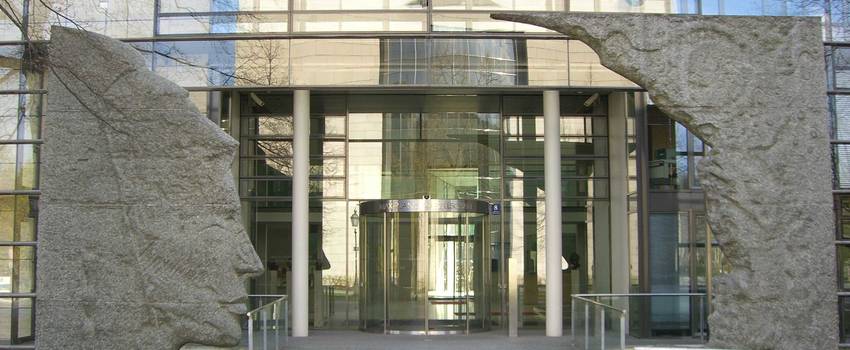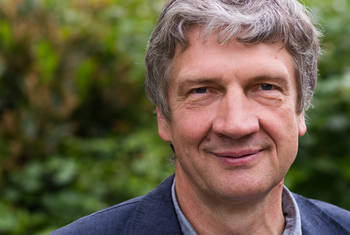Erika Pearce How Does Metabolism Influence the Function of Different T Cell Types?
Erika Pearce is Director and Senior Group Leader at the Department of Immunometabolism of the Max Planck Institute of Immunobiology and Epigenetics in Freiburg, Germany. Her research strives to understand the cellular and molecular mechanisms related to T cells and the immune response. She currently focuses on the role of metabolism in regulating memory T cell development and effector T cell function. Pearce also has editorial responsibilities at a number of renowned scientific journals including Science, Nature and Cell. In 2014, she received the “Investigators in the Pathogenesis of Infectious Disease Award” of the Burroughs Wellcome Fund.
Area of Research
Immunology
since 2015
Director and Senior Group Leader
Max Planck Institute of Immunobiology and Epigenetics
Department of Immunometabolism
2014-2015
Associate Professor of Pathology and Immunology
Washington State University
Department of Pathology and Immunology
2011-2014
Assistant Professor of Pathology and Immunology
Washington State University
Department of Pathology and Immunology
2009-2011
Assistant Member
Trudeau Insitute
2006-2009
Post-doctoral Researcher
University of Pennsylvania
Abramson Family Cancer Research Institute
2001-2005
Graduate Student
University of Pennsylvania
Cellular and Molecular Biology Program
1998-2001
Research Technician
Cornell University
Department of Microbiology and Immunology
2005
PhD in Cell and Molecular Biology
University of Pennsylvania
1998
B.A. in Biological Sciences
Cornell University
- Member of the Editorial Board for Cell (2016 - present)
- Member of the Editorial Board for Cell Metabolism (2016 - present)
- Member of the Advisory Editorial Board for Trends in Immunology (2014 - present)
- Ad hoc grant reviewer for NIH – CMIB study section (2015)
- Ad hoc member of the Editorial Board, Annual Reviews in Immunology (2014)
- Scientific Advisory Board member, Partikula LLC (2016 - present)
- Scientific Advisory Board member, ImmunoInflammation Therapeutic Area of GlaxoSmithKline (2016 - present)
- Scientific Advisory Board member, ImmunoMet Therapeutics (2015 - present)
- Program Committee American Association of Immunologists (AAI) (2012 - 2015)
Prizes
- Gottfried Wilhelm Leibniz-Preis (2017)
- Burroughs Wellcome Investigator in the Pathogenesis of Infectious Disease Award (2014)
- Emerald Foundation Young Investigator Award (2010)
 © Maximilian Dörrbecker
© Maximilian Dörrbecker
Max Planck Society
"The Max Planck Society is Germany's most successful research organization. Since its establishment in 1948, no fewer than 18 Nobel laureates have emerged from the ranks of its scientists, putting it on a par with the best and most prestigious research institutions worldwide. The more than 15,000 publications each year in internationally renowned scientific journals are proof of the outstanding research work conducted at Max Planck Institutes – and many of those articles are among the most-cited publications in the relevant field." (Source)
Institute
Max Planck Institute of Immunobiology and Epigenetics
The Max Planck Institute of Immunobiology and Epigenetics (MPI-IE) in Freiburg is an interdisciplinary research institution that conducts basic research in two key areas of modern biology. Immunobiology is concerned with the ways multicellular organisms defend themselves against pathogens. We study the evolutionary origins and the development of lymphoid organs and immune effector cells, the function of antigen receptors, and the genetic basis of host-pathogen interactions. This information underpins efforts to better diagnose and treat immunodeficiency and inflammatory diseases.
Epigenetics is the study of inheritable traits that are not caused by changes in the underlying DNA sequence. Epigenetic mechanisms are crucial for the organization and utilization of our genetic information. Since the susceptibility to diseases can be promoted by epigenetic dysfunction, epigenetic research has far-reaching implications for diagnosis and therapy of human disease.The MPI-IE with its 372 employees currently hosts 17 research groups, which are supported by state-of-the-art scientific facilities. For the training of young scientists, we offer an international PhD program, the International Max Planck Research School for Molecular and Cellular Biology (IMPRS-MCB). (Source)
Map
T cells are an important component of the body’s immune system. As ERIKA PEARCE explains, there are several types of T cells which form consecutively during the immune response and serve different purposes. Effector T cells combat pathogens from infections or tumors while memory T cells provide protective immunity to prevent re-infection or reoccurring cancer. The research presented in this video investigates how the metabolism of the T cells influences the development of effector and memory T cells by blending in vitro and in vivo approaches. The findings show that the morphology of the mitochondria determines the ability of different types of T cells to perform their functions. Furthermore, the researchers were able to modify the mitochondria in a way that the resulting T cells would provide a better immunity against cancer. These insights open up new possibilities to alter immune cell function and thus might lead to improved immunotherapy.
LT Video Publication DOI: https://doi.org/10.21036/LTPUB10372
Mitochondrial Dynamics Controls T Cell Fate Through Metabolic Programming
- Michael D. Buck, David O’Sullivan, Ramon I. Klein Geltink, Jonathan D. Curtis, Chih-Hao Chang, David E. Sanin, Jing Qiu, Oliver Kretz, Daniel Braas, Gerritje J. W. van der Windt and Erika Pearce
- Cell
- Published in 2016









